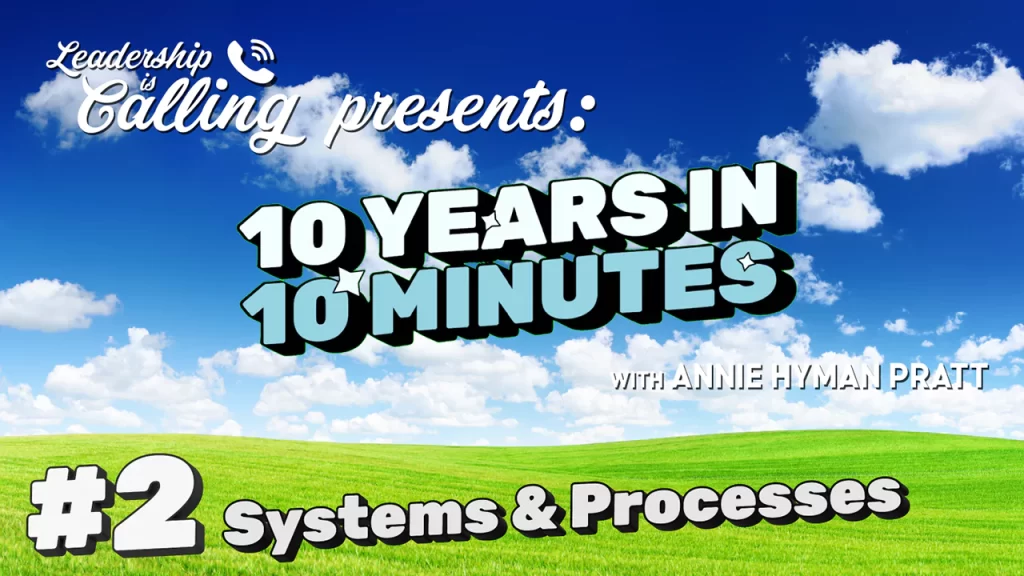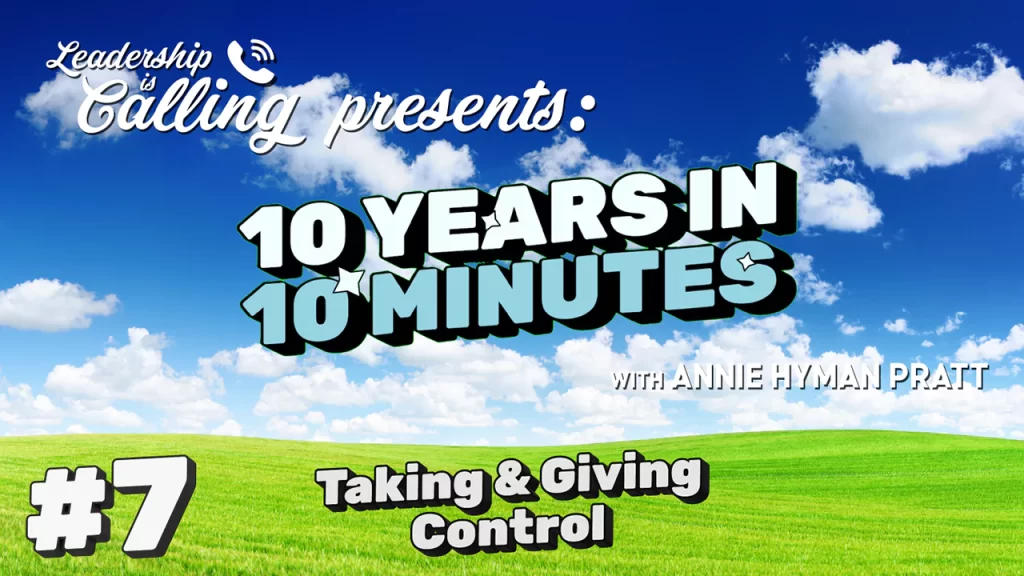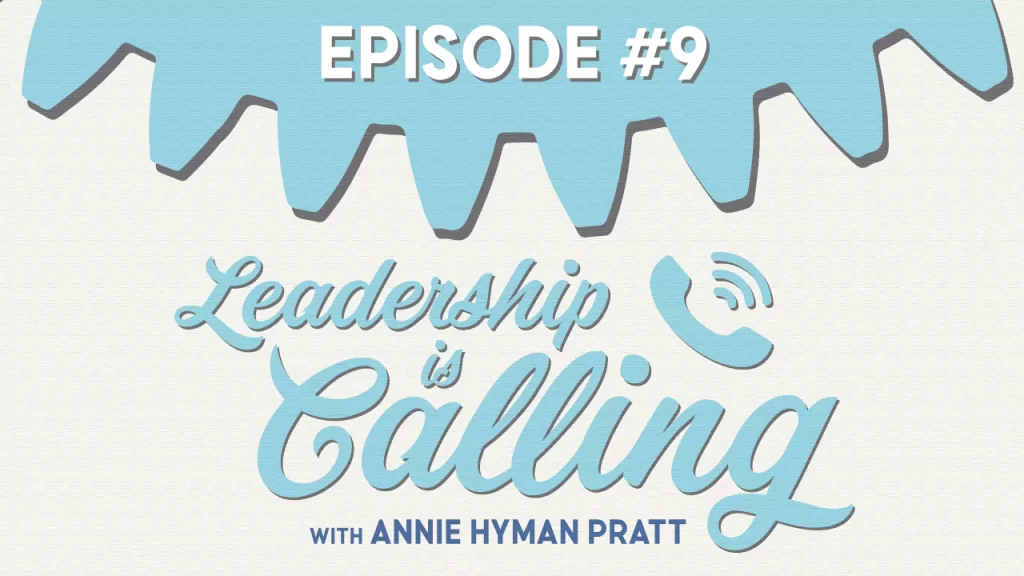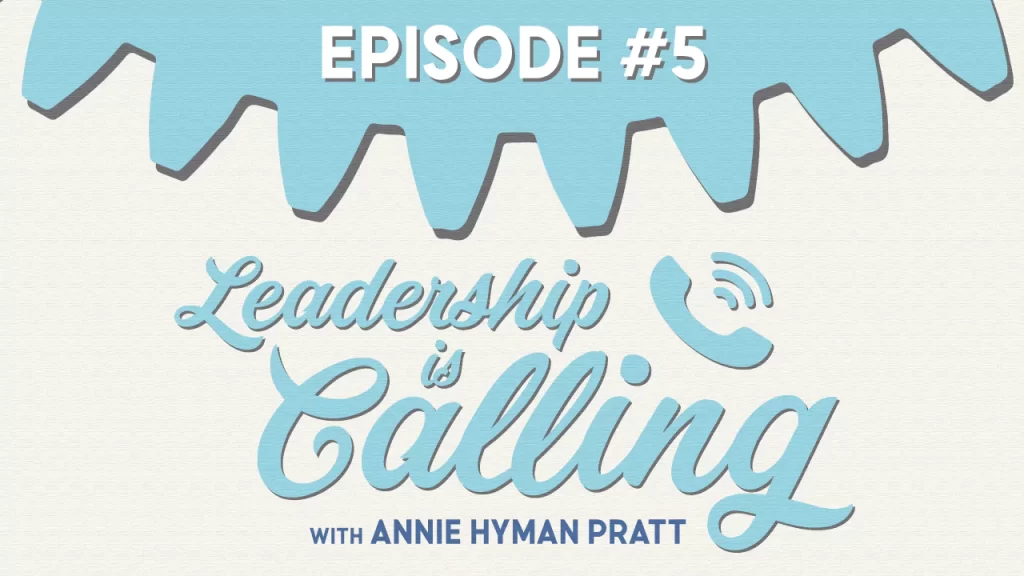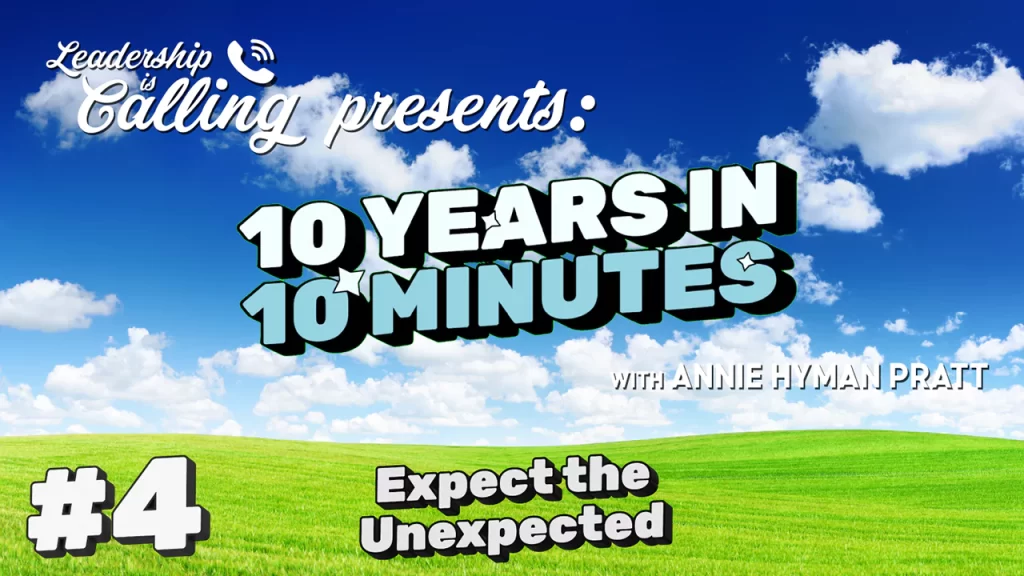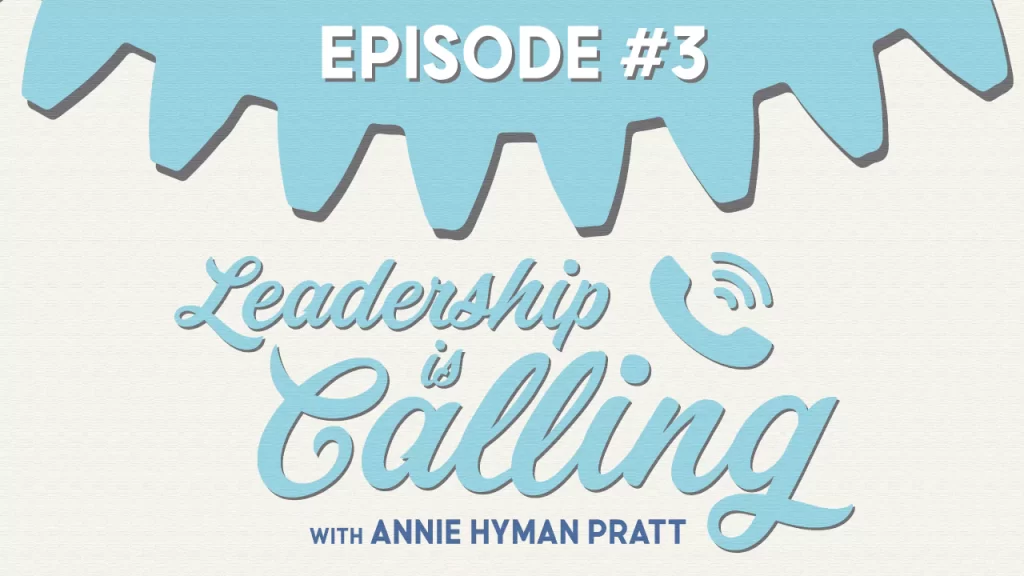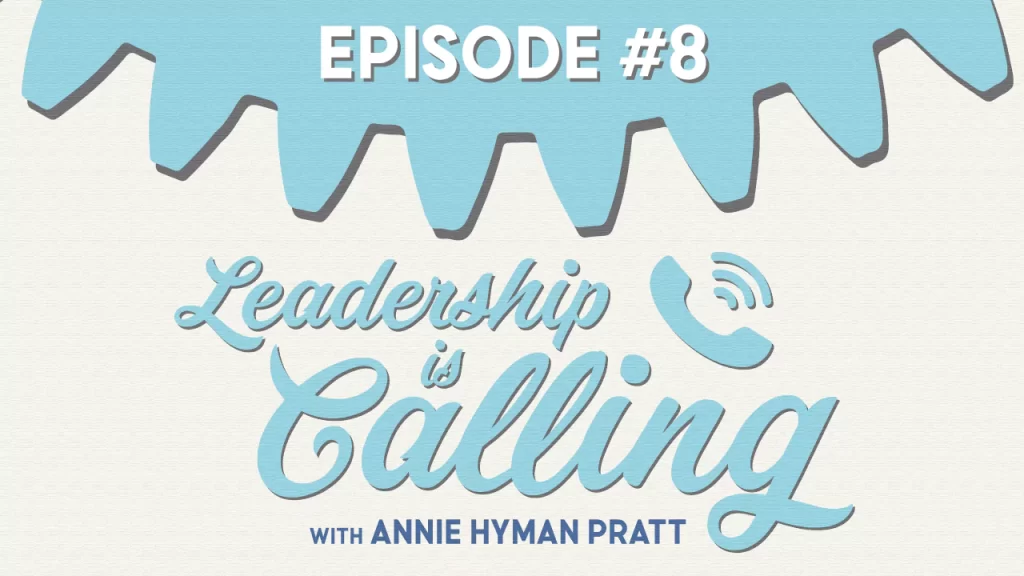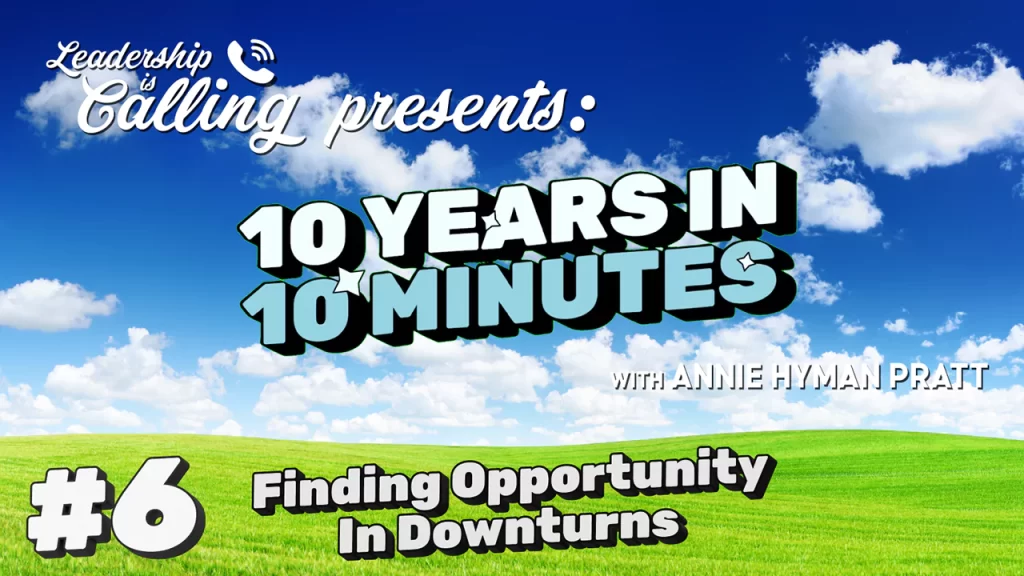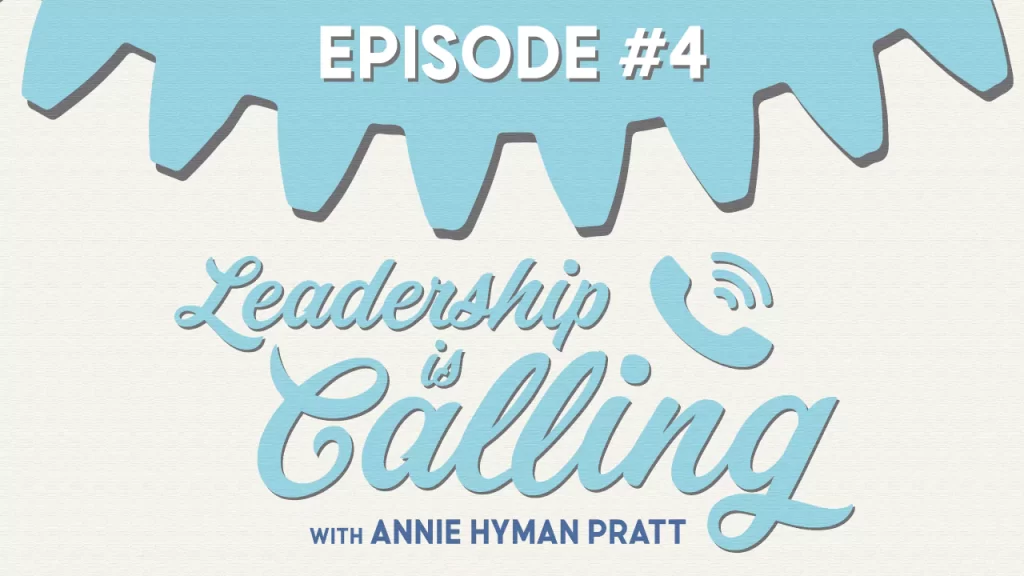Episode #56: From Dream Job to Burnout: The Hidden Cost of Self-Sacrifice
Leadership is Calling Episode #56
Annie Hyman Pratt
- Description
- Transcript
From Dream Job to Burnout: The Hidden Cost of Self-Sacrifice
Is your work-life balance so out of whack that you’re on the verge of burnout? Is your job slowly turning into your entire life?
You’re not alone. Many fall into the trap of self-sacrifice, prioritizing work over their well-being. This video explores the hidden dangers of extreme dedication, like burnout and unsustainable work models.
Discover the perils of two workplace extremes: excessive self-sacrifice and extreme self-centeredness. Through a cautionary tale, learn how over-sacrificing leads to burnout and loss of personal life. Yet, being overly self-centered also backfires, undermining team success. Strike a balance – avoid burnout by caring for yourself while still contributing to the team. Trust others to do the same. Lean in and consider colleagues’ needs. Find the sustainable middle ground for a rewarding, fulfilling career.
Key Points
- Both extreme self-sacrifice and self-centeredness are unsustainable in work relationships.
- Finding a balance in the middle is key to creating a successful and lasting dynamic.
- Taking care of ourselves is essential for long-term success.
- Aim for the middle ground, taking care of yourself while contributing to the team.
- Trust your team to also prioritize self-care and avoid over-sacrificing.
- Self-centered individuals should lean in and consider others’ needs.
Related Resources
Leadership Skills: The People Part
Leadership Development Articles: Self-Care Is Non-Negotiable | Beyond Goals: Unlocking True Success by Defining Who You Want to Be
Downloadable Leadership Tool: The Secret Recipe
Auto-Generated Transcript – unedited version
From Dream Job to Burnout: The Hidden Cost of Self-Sacrifice
**Hey, everybody. Annie here. I was reading an article this weekend about a woman who became the kind of personal and executive assistant for a very wealthy hedge fund manager. This story started off with how much she loved her job. And as I was reading it, I was thinking, this is interesting because she’s describing her job. I’m going to talk about that in a second, just describing her job. But as I was reading it, I was thinking, my gosh, there is a shoe that’s going to drop here. Because when anybody is hugely kind of over the top, self-sacrificing in a role, it doesn’t work out long-term. Okay.
So let me backup and share about this. This woman, I think she was relatively young, and she loved her job for the first year. So she was basically making the hedge fund manager’s life frictionless. And she was doing that by being at his beck and call, really, you know, doing all kinds of last-minute things like booking jets and boats, getting into restaurants that were overbooked, and, you know, getting people together from all four corners of the planet – just really kind of doing anything that he needed at any time. And she was with him or his family pretty much 24/7, traveled with them, saw some amazing places, you know, did some amazing travel. He paid her really well. He lavished lots of really expensive things on her, yes, like high-end purses, coats, and jewelry, and just really incredible stuff like that way. And he had a very interesting life. And she did a lot of super interesting things. Okay, so that sounds like it would be perfect for, you know, almost anybody, at least a young person without a family yet. You just go around.
But what she found is after a year, she started to realize, “Wait a minute, I don’t have any of my own life here. I’ve actually just become an extension of this family. And I don’t have any control over my own time, really, even over my own thoughts. Like there’s no time for me to read a fiction book or to pick up a hobby. I’m only thinking about my boss’s world and all the responsibilities I have in it.”
Okay, so in this example, I consider her to be the highly self-sacrificing one. If there is a continuum here, on one side is the self-sacrificing one, and on the other side is, in this case, a hedge fund manager who is the self-centered part of the polarity. Right? Okay, let me just say that neither of these are good or bad. Like, we need both to function in the world, to make our society work, to have teams work together. And so what we’re looking for, and what is sustainable in work relationships, is when people are more towards the middle. Any extreme is a problem because an extreme is often met with an opposite extreme, and it’s unsustainable. The self-sacrificing person will burn out – they just will. And the self-centered side will have to keep replacing them. And that is actually not optimal for success. It’s just not.
And there isn’t a time where I’ve ever seen, either with clients or in my own life as well, where I or my clients could keep up a super highly self-sacrificing role – couldn’t do it even if it was great pay, high status, and really, you know, cool things happening. It’s like we need to have the time and the headspace to take care of ourselves. We are our own resource. We need to be able to take care of ourselves.
And so with that, as I’m reading this article, I know I’m thinking in the beginning there is going to be a shoe to drop, and I’m going to be shocked if she’s still there five years later. And she quit, by the end of her second year, just couldn’t continue. And that has been very much my experience too. When I took interim executive roles where I was working round the clock to make a business successful and didn’t have time to take care of myself, by the way, one time I was working as a contract CFO for a company called Fat Burger. They had just been purchased by a celebrity group. I was working there so much, and our office was over the restaurant, that I gained 15 pounds from chili cheese fries because that’s what you eat at like 8:30 at night when you’re not going home because you need some little bit of joy while you’re, you know, trying to, in my case, balance the books. So it wasn’t sustainable.
It wasn’t sustainable. You know, I lost about two years, not so different than this other woman. And so, when you’re in that spot, I think the first thing is to really recognize if you’re too far at the polarities. And to know that we’ve got to be able to trust each other in a team, that we will take care of ourselves, that we will not self-sacrifice so much that we fall into a crisis, because that’s not sustainable – that doesn’t help anybody.
And at the same time, you know, the people that are more on the self-centered part need to lean in a bit because the self-centered part can feel pretty effective. And we need that kind of drive – it’s not a bad thing. We need that kind of drive, but it’s not sustainable if you are a self-centered person relying on a lot of self-sacrifices because the self-sacrificers just won’t stay. The team will constantly turn over. And so if you’re at a polarity, recognize where you are and lean in. Try to lean in a bit because it’ll work better. That’s what I wanted to share with you today.**






